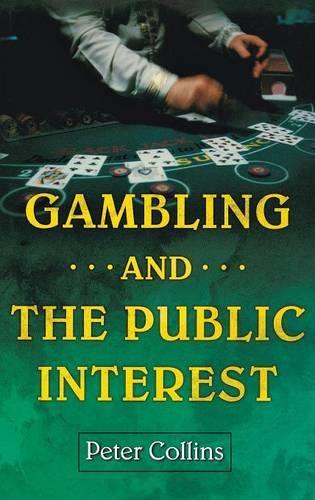
Gambling and the Public Interest
(Hardback)
Publishing Details
Gambling and the Public Interest
By (Author) Peter Collins
Bloomsbury Publishing PLC
Praeger Publishers Inc
30th April 2003
United States
Classifications
General
Non Fiction
Ethical issues, topics and debates
Central / national / federal government policies
363.42
Physical Properties
Hardback
224
Width 156mm, Height 235mm
482g
Description
No longer confined to Nevada and Atlantic City, gambling is cropping up everywhere with astonishing pervasiveness, from the new Native American casinos to state-run lotteries to the Internet. Arguing against the idea that a moral case can be made for banning gambling in a society committed to liberal democratic values, Collins nonetheless sees a role for furthering public policy goals and mitigating the ill effects of gambling on communities as well as on gamblers themselves. Recognizing that governments and suppliers of gambling services have a common interest in ensuring that gambling is both profitable and well thought of by the general population, he argues for tax policies that direct investment toward communities in special need and for honest and realistic treatment and prevention programs for compulsive gamblers. Politicians, civil servants, and regulators concerned with gambling matters; those in and outside of the gambling industry who seek to influence it; and students of the gambling industry at all levels should find this a useful look at a growing and controversial industry.
Reviews
Discusses regulatory, tax. and other public-policy issues related to gambling, including whether the gaming industry should be compelled to finance treatment for problem gamblers.-The Chronicle of Higher Education
"Discusses regulatory, tax. and other public-policy issues related to gambling, including whether the gaming industry should be compelled to finance treatment for problem gamblers."-The Chronicle of Higher Education
Author Bio
PETER COLLINS is Professor and Director of the Centre for the Study of Gambling and Commercial Gaming at the University of Salford, UK, and he is Executive Director of the South African National Responsible Gambling Programme.
